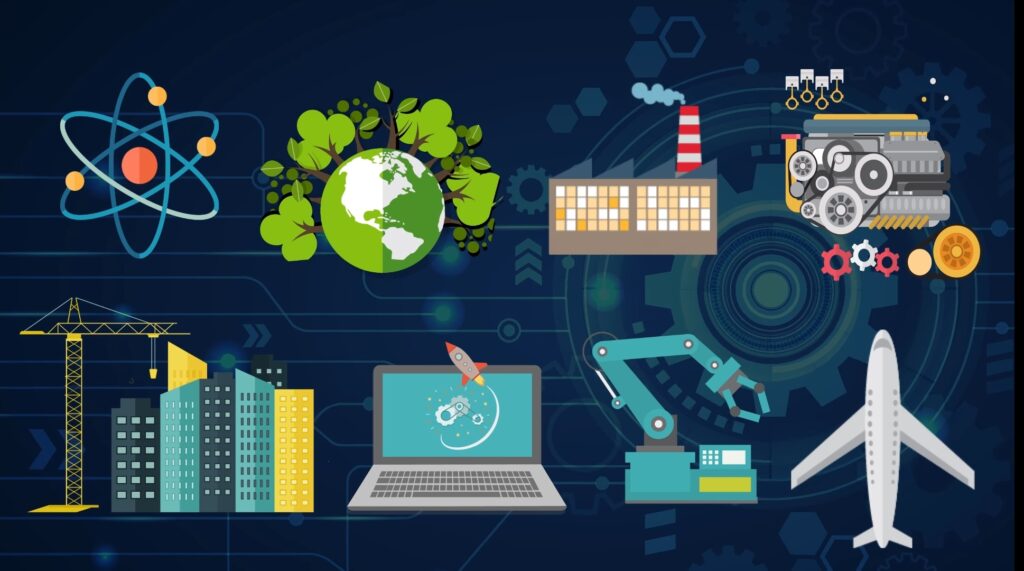Is Public Utilities A Good Career Path
iIntroduction
Have you ever considered pursuing a career in public utilities? If not, you should! Public utilities play an important role in our society, providing essential services like water, gas, and electricity to millions of people across from country. In this article, we’ll explore the various types of jobs available in this industry, the required education, skills, salary and benefits career advancement opportunities, work environment, and culture, as well as future outlook and potential challenges. We ‘ll also provide real-life success stories of professionals in the field and offer job search strategies for those interested in pursuing a career in public utilities.
Definition of Public Utilities
Public utilities are essential services that are typically provided to the public by government-regulated companies. These services include gas, electricity, water, and telecommunications. They are essential to our daily lives and are often taken for granted.
Importance of Public Utilities in Society
Public utilities are crucial to the functioning of society. They provide the basic needs of life, such as access to clean water, warmth, and electricity. Without these essential services, our modern world would come to a standstill, and people’s lives would be impacted negatively.
Overview of the Current State of Public Utilities Industry
There are many difficulties currently facing the public utilities sector. Some of the issues this business faces include aging infrastructure, quickly evolving technology, and the need to balance environmental concerns with the demand for dependable energy and water services. Despite these difficulties, the public utility sector continues to play a crucial role in our contemporary society by offering key services to millions of Americans.

Purpose of the Article
This article’s goal is to give you comprehensive information about public utilities, the many careers that are available in this sector, the education and experience requirements, pay and perks, chances for career advancement, and the work environment and culture. We’ll also go through the difficulties and chances the public utilities sector is facing, as well as provide job search advice for anyone looking to work in this business.
Why Pursue a Career in Public Utilities?
There are several compelling reasons to pursue a career in public utilities. Here are the key benefits are given below.
- Public Service Impact: By working in public utilities, you have the opportunity to directly impact the lives of individuals within your community. Public utilities encompass vital services like electricity, water, gas, and telecommunications, which are indispensable for the smooth functioning of society.
- Job Stability: Public utilities are typically regulated by the government or publicly owned, which translates into a higher degree of job stability compared to other fileds. These organizations are designed to provide essential, long-term services, and they prioritize retaining their employees.
- Opportunities for Advancement: Public utilities operate as intricate organizations that require a diverse range of skills and expertise. This creates abundant opportunities for professional growth and advancement. As you accumulate experience and develop specialized knowledge, you can progress up the career ladder and undertake more challenging roles.
- Technological Advancements: The field of public utilities is currently witnessing rapid technological advancements. Consequently, there is an increasing demand for professionals who can harness innovative technologies to optimize infrastructure, improve efficiency, and promote sustainability.
- Competitive Compensation and Benefits: Public utilities frequently offer competitive compensation packages and comprehensive benefits to attract and retain skilled professionals. These packages typically include competitive salaries, health insurance, retirement plans, paid time off, and various additional perks. Furthermore, some public utilities provide opportunities for flexible work arrangements and prioritize work-life balance, contributing to overall job satisfaction.
Types of Jobs in Public Utilities
Public utilities are essential for our daily lives, providing services like electricity, water, telecommunications, and transportation. Behind these services, there are professionals dedicated to ensuring their efficient delivery. Let’s explore some of the key jobs in public utilities:
- Electrical Engineers: They design, develop, and maintain the electrical infrastructure, ensuring a steady supply of electricity for homes and cities. Their expertise ranges from power generation to renewable energy projects.
- Water Resource Managers: Responsible for managing water treatment plants and distribution systems, they ensure clean and safe water availability. Their focus is on conservation and sustainable water resource management.
- Telecommunications Technicians: These professionals install, maintain, and repair the infrastructure that supports communication networks. They specialize in network systems, fiber optics, and wireless technologies.
- Transportation Planners: They contribute to designing and managing public transit networks, roadways, and transportation infrastructure. Their goal is to improve mobility, reduce congestion, and create sustainable transportation systems.
- Environmental Scientists: Working within the sector, they study and mitigate the environmental impact of utility operations. They develop conservation strategies and ensure compliance with environmental regulations.
- Customer Service Representatives: The primary point of contact for consumers, they handle inquiries, address concerns, and provide assistance regarding utility services. They play a crucial role in maintaining positive relationships with customers.
- Project Managers: Overseeing infrastructure projects, they coordinate stakeholders, allocate resources, and ensure timely completion. Their skills in project planning and team coordination are vital for successful project delivery.
These diverse roles contribute to the efficient functioning of public utilities, ensuring that communities have access to reliable services while promoting sustainability and customer satisfaction.

Required Education and Skills
In the context of public utility companies, which encompass water, electricity, gas, and telecommunications providers, a wide range of positions require specific education and skills. Below, we outline the commonly required qualifications and competencies for different roles within these companies:
Technical and Engineering Positions:
Education: A bachelor’s degree in engineering or a related field such as electrical, civil, mechanical, or chemical engineering is often a prerequisite.
Skills: Strong technical knowledge, exceptional problem-solving abilities, proficiency in relevant software and tools, a comprehensive understanding of safety protocols, and the capability to design, operate, and maintain utility systems.
Customer Service Representatives:
Education: While a high school diploma or equivalent is typically the minimum requirement, some companies may prefer candidates with an associate’s or bachelor’s degree in business or a related field. Skills: Excellent communication and interpersonal skills, prior customer service experience, the ability to handle customer inquiries, troubleshoot issues, and effectively manage customer accounts.
Administrative and Management Roles:
Education: A bachelor’s or master’s degree in business administration, public administration, finance, or a related field is often preferred. However, relevant experience may also be considered in some cases.
Skills: Strong organizational and leadership abilities, proficiency in financial management, sound decision-making capabilities, project management skills, and knowledge of regulatory compliance within the utility industry.
Field Technicians and Operators:
Education: Typically, a high school diploma or equivalent is required, complemented by vocational training or an associate’s degree in a relevant field.
Skills: Practical knowledge of utility systems, expertise in equipment operation and maintenance, troubleshooting skills, physical stamina, adaptability to work in various weather conditions, and a commitment to adhering to safety procedures.
Environmental and Sustainability Specialists:
Education: A bachelor’s or master’s degree in environmental science, sustainability, or a related field is often a requirement.
Skills: A deep understanding of environmental regulations and sustainable practices, proficiency in data analysis, the ability to develop and implement environmental programs, and knowledge of renewable energy technologies.
IT and Technology Professionals:
Education: Typically, a bachelor’s or master’s degree in information technology, computer science, or a related field is required.
Skills: Proficiency in programming languages, adeptness in database management, expertise in network administration and cybersecurity, software development capabilities, system integration proficiency, and knowledge of utility-specific technologies.
Note that specific educational requirements and desired skills may vary depending on the company, position level, and specific job responsibilities within the public utility sector. It is always recommended to review job postings and requirements provided by individual companies for accurate and up-to-date information.
Training and Certification Requirements
The public utilities industry requires unique training and certification.
- On-the-Job Training and Apprenticeships: Many jobs in the public utilities industry require on-the-job training and apprenticeships. Some companies may offer these opportunities to recently hired employees.
- Certification Requirements for Different Roles: Some positions in the public utilities industry require specific certifications. For example, water and wastewater treatment plant operators may need certification as a Water Treatment Plant Operator.
- Continuing Education Opportunities: Public utilities companies offer continuing education opportunities to keep up with the needs of the industry.
Salary and Benefits of Public Utilities Jobs
The salary and benefits of public utilities jobs vary depending on the position, experience, and location. In general, public utilities jobs offer competitive pay and benefits.
According to the Bureau of Labor Statistics, the median annual salary for all occupations in the public utilities industry was $65,270 in Jun 2021. The top 10% of earners in this industry made more than $117,390, while the bottom 10% made less than $38,430.
Some of the highest-paying public utilities jobs include:
- Power engineers: $119,430
- Electrical engineers: $105,140
- Plumbers: $56,330
- Electricians: $55,270
- Line workers: $54,710
In addition to competitive pay, public utilities jobs often offer good benefits, such as:
- Health insurance
- Life insurance
- Paid vacation
- Paid sick leave
- Retirement plans
The public utilities industry is also a stable industry, with a low risk of layoffs. This makes it a good option for those who are looking for a secure career with good benefits.
The public utilities industry is a great option for those who are looking for a rewarding career with good pay and benefits. If you are interested in this field, I encourage you to do some research and learn more about the different opportunities available.
Work Environment and Culture
Public utilities work environments include both indoor and outdoor settings.
- Typical Work Environment in Public Utilities: The work environment varies across different roles, but it often includes working out in the elements, climbing and moving equipment, and working in offices or control rooms.
- Importance of Safety in the Workplace: Safety is a critical concern in public utility jobs because of the nature of the work. Companies dedicate much training to safety to decrease accidents and injuries.
- Employee Culture and Community Involvement: Public utility companies prioritize community involvement and regularly participate in volunteer opportunities and fundraisers to support the community.
Challenges and Opportunities Facing the Public Utilities Industry
Change is the only constant, and it applies to the public utility industry as well.
Aging Infrastructure and the Need for Modernization
Aging infrastructure is a significant challenge facing the public utilities industry. Upgrades and improvements are necessary to meet the changing needs of society.
Rapidly Changing Technology and Innovation
Technological advancements can improve the efficiency of public utilities companies.
Balancing Environmental Concerns with the Need for Reliable Energy and Water Services
Public utilities companies face customers and governments who want reliable services with minimal environmental impacts.
Potential Impact of Government Regulations and Policies
Government regulations and policies can significantly impact public utilities companies, including rates, service areas, and more.
Future Outlook for the Public Utilities Industry
The future of the public utilities industry holds exciting prospects. Here’s a brief and engaging outlook:
- Clean Energy Surge: Public utilities will embrace renewable energy sources like solar and wind power, reducing carbon emissions and promoting a sustainable future.
- Smart Grid Revolution: Advanced technologies will optimize energy distribution, empowering consumers to control usage and improving overall efficiency and reliability.
- Energy Storage Breakthroughs: Innovations in energy storage, like batteries, will revolutionize grid stability and enable seamless integration of renewable energy.
- Resilience and Cybersecurity: Robust measures will safeguard critical infrastructure, ensuring a reliable and secure energy supply for all.
- Water Management Revolution: Utilities will adopt smart water solutions and conservation practices to combat water scarcity and promote sustainable usage.
- Customer-Centric Approach: Utilities will prioritize customer engagement, offering personalized services, energy insights, and interactive support channels.
- Electrified Transportation: Collaboration with EV manufacturers and governments will drive the expansion of charging networks, supporting the electric vehicle revolution.
The future of public utilities is bright, with a focus on sustainability, innovation, and customer satisfaction.
Job Search Strategies for Public Utilities Careers
Here are some job search strategies for public utilities careers:
- Do your research. Before you start applying for jobs, take some time to learn about the public utilities industry. This includes understanding the different types of jobs available, the skills and experience required, and the salary ranges. You can find this information on industry websites, government websites.
- Network. Networking is one of the best ways to find public utilities jobs. Talk to your friends, family, and former colleagues to see if they know of any openings. You can also attend industry events and meetups to meet new people and learn about job opportunities.
- Attend job fairs. Job fairs are a great way to meet with potential employers and learn about job openings. You can also hand out your resume and network with people in the industry.
- Tailor your resume and cover letter. When you apply for public utilities jobs, make sure your resume and cover letter are tailored to the specific position you are applying for. Highlight the skills and experience that are most relevant to the job.
- Practice your interviewing skills. The interview is your chance to make a good impression on a potential employer. Practice answering common interview questions and be prepared to talk about your skills and experience.
Here are some additional tips for job search success in the public utilities industry:
- Be persistent. The job search process can be long and challenging, but it is important to be persistent. Keep applying for jobs and networking with people in the industry.
- Be positive. A positive attitude will go a long way in the job search process. Employers are more likely to be interested in candidates who are enthusiastic and motivated.
I hope these tips help you in your job search for public utilities careers. Good luck!
Related Topics:
Is Transportation A Good Career Path
Is Industrial Machinery/Components a Good Career Path
Is Metal Fabrication a Good Career Path
Is Miscellaneous a Good Career Path
Is Capital Goods a Good Career Path
Is Public Utilities A Good Career Path
Is Major Banks a Good Career Path
FAQs
We answered frequently asked questions related to pursuing a career in public utilities:
What are some of the top public utilities companies to work for?
The top public utilities companies to work for include Duke Energy, American Water Works, and Xcel Energy, among others.
How can I prepare for an interview in the public utilities industry?
Preparing for an interview in the public utilities industry involves researching the company beforehand and studying industry trends.
What are some of the most in-demand public utilities positions?
The most in-demand public utilities positions include engineers, operational leaders, and customer service representatives.
How do I obtain the necessary certifications for public utilities positions?
Each certification requires different educational and work requirements. Certificates can be obtained by specific professional organizations upon meeting credential requirements.
What kind of training is available for public utilities positions?
On-the-job training and apprenticeships are common in public utilities jobs.
Conclusion
Public utilities provide critical services to society, and the industry offers a wide range of opportunities for skilled professionals. A career in public utilities can provide job stability, competitive salaries and benefits, career advancement opportunities, and a sense of purpose. With an understanding of the various types of jobs available in this industry, the required education and skills, salary and benefits, career advancement opportunities, and work environment and culture, you can make an informed decision about whether pursuing a career in public utilities is the right career path for you.




Pingback: Is Metal Fabrication a Good Career Path -
Pingback: What do you do when you are tired of your job? -